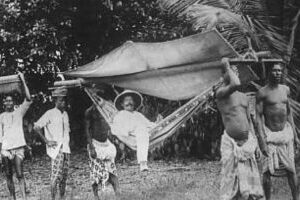From Psychology Today: “Psychological theory, research and practice have been increasingly criticized for their narrow perspective and biases, many of which are reflective of WEIRD culture (Western, educated, industrialized, rich, democratic [sic]; Henrich et al., 2010). There are alternative approaches to psychology.
In his new book, A New Psychology Based on Community, Equality, and Care of the Earth, Arthur Blume (2020) provides both a critique and an alternative psychology, based on how psychology has been practiced for thousands of years by Indigenous/First Nation communities. Blume contrasts the premises of Indigenous psychology with what he calls colonial psychology.
Colonial Psychology
The field of psychology was founded by White males and continues to be dominated by people who are descendants of White Europeans. Only 0.1% of American Psychological Association membership is American Indian/Alaska Native. From the beginning the field tried to establish itself as a science, but not the kind of science Native Peoples practice.
Blume identifies several perspectives of the ‘colonial’ worldview he considers myths because they are contrary to the longstanding psychologies of Native Peoples.
Blume calls nature ‘creation,’ to ‘grant it the respect it deserves as the entity from which we derive our existences’ (pp. 4-5).
Here are key constructs within the field of ‘colonial’ psychology. Note that it can be difficult to recognize one’s own cultural assumptions unless one is immersed in a contrary culture. Again, these are contrary to Indigenous psychology.
- Creation must be improved.
- The individual self is central.
- Life is compartmentalized.
- Ownership is possible and desirable.
- Time is bounded.
- Existence is hierarchical.“

***
Back to Around the Web











